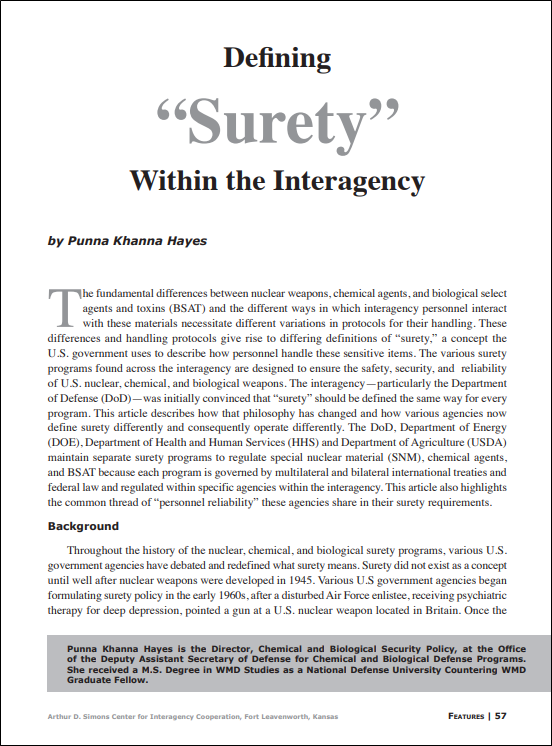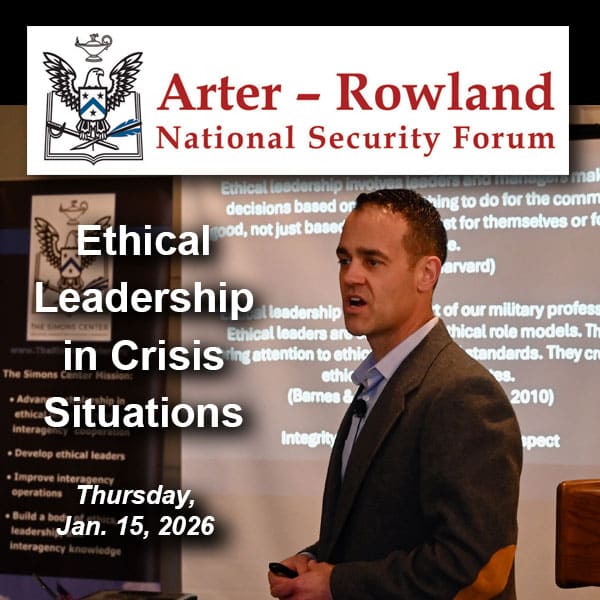Featured Article: Defining “Surety” Within the Interagency
Featured article:
Defining “Surety” Within the Interagency
by Punna Khanna Hayes
The fundamental differences between nuclear weapons, chemical agents, and biological select agents and toxins (BSAT) and the different ways in which interagency personnel interact with these materials necessitate different variations in protocols for their handling. These differences and handling protocols give rise to differing definitions of “surety,” a concept the U.S. government uses to describe how personnel handle these sensitive items. The various surety programs found across the interagency are designed to ensure the safety, security, and reliability of U.S. nuclear, chemical, and biological weapons. The interagency—particularly the Department of Defense (DoD)—was initially convinced that “surety” should be defined the same way for every program. This article describes how that philosophy has changed and how various agencies now define surety differently and consequently operate differently. The DoD, Department of Energy (DOE), Department of Health and Human Services (HHS) and Department of Agriculture (USDA) maintain separate surety programs to regulate special nuclear material (SNM), chemical agents, and BSAT because each program is governed by multilateral and bilateral international treaties and federal law and regulated within specific agencies within the interagency. This article also highlights the common thread of “personnel reliability” these agencies share in their surety requirements.
Throughout the history of the nuclear, chemical, and biological surety programs, various U.S. government agencies have debated and redefined what surety means. Surety did not exist as a concept until well after nuclear weapons were developed in 1945…
Read the full article
Defining “Surety” Within the Interagency PDF
Download the complete edition
IAJ 10-2 (2019) pdf
IAJ 10-2 (2019) ePub
Punna Khanna Hayes is the Director, Chemical and Biological Security Policy, at the Office of the Deputy Assistant Secretary of Defense for Chemical and Biological Defense Programs. She received a M.S. Degree in WMD Studies as a National Defense University Countering WMD Graduate Fellow.

READ THE LATEST UPDATES FROM THE SIMONS CENTER
"*" indicates required fields


